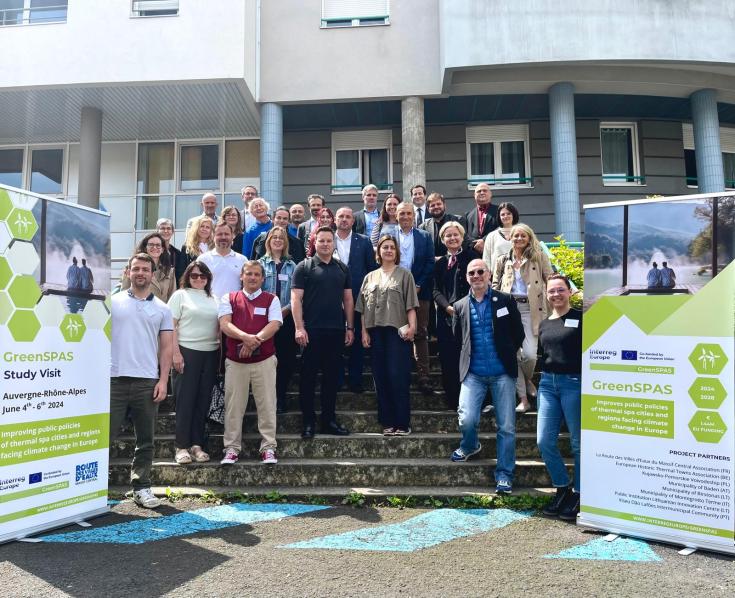First Study Visit in the Auvergne-Rhône-Alpes Region
Wrapping up the first study visit of the GreenSPAS project in the Auvergne-Rhône-Alpes region! Over three days, we had the privilege of exploring the rich thermal heritage and innovative climate strategies of the area. This experience has been crucial for the GreenSPAS project, emphasising the importance of improving public policies regarding climate change in thermal towns and showcasing new best practices that can be adopted and adapted elsewhere.
All the partners gathered in this beautiful region, immersing themselves in its thermal history and development. The collaborative spirit and shared knowledge over these days underscored the importance of our collective efforts towards ecological transition and sustainable development.
Exploring Thermalism and Ecological Transition
The journey began in the town of Royat, where we were warmly welcomed by Vice-Mayor Isabelle Coquel. The first day was dedicated to insightful discussions on thermalism and ecological transition. Éric Brut, General Director of the La Route des Villes d'Eaux du Massif Central and Thermeauvergne and Marion Roussel, Head of European Cooperation, provided us with a comprehensive overview of the thermal spa industry in France with details onthe national and regional thermal ecosystem, and highlighting the specific challenges faced by the sector.
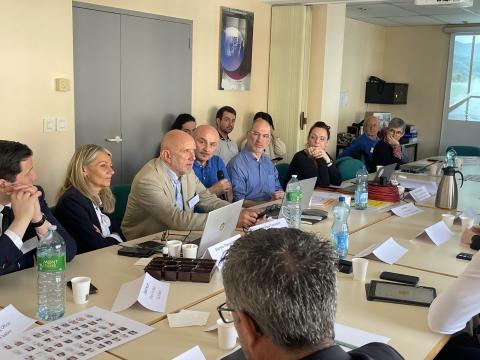
Dominique Ferrandon, Director of Thermes de Royat, presented the impressive Thermes de Royat project, showcasing innovative approaches to combining wellness and sustainability.
In the afternoon, Emilie Peyronnet, Project Director for Thermalism and Full Health at the Auvergne-Rhône-Alpes Region, discussed the regional thermal plan. We were privileged to learn from Paul-Henri Dupuy, Massif Central Commissioner, and Stéphanie Girau, as they outlined the Massif Central strategic climate plan. Catalina Duque Gomez, Deputy General Director of Services at the Communauté de communes du Bocage Bourbonnais, shared the TACCT method for adapting to territorial climate change, providing valuable insights into practical adaptation strategies.
A highlight of the day was the tour of the technical facilities at Thermes de Royat, where we were able to see first-hand the advanced infrastructure and innovative technologies supporting these sustainable initiatives
Municipal Ecological Transition Policies
In Châtel-Guyon, we were warmly welcomed by Mayor Frédéric Bonnichon and Nathalie Abelard, Vice-Chairman for the Environment and Sustainable Development of the Riom Limagne et Volcans Urban Community. They presented the region's inter-communal and municipal ecological transition policies, showcasing the proactive measures being taken to address climate change at the local level.
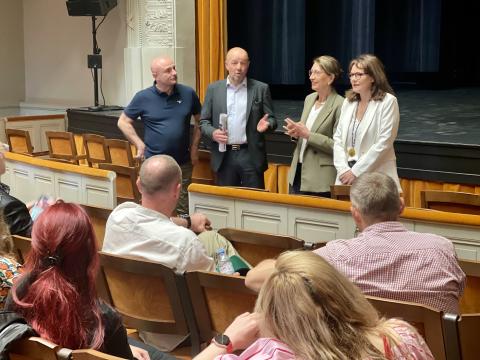
These presentations were incredibly valuable, offering us new perspectives and practical examples of how public policies can be effectively implemented to combat climate change.
Our visit to Aïga Resort Thermal & Spa, guided by Director Hélène Georjon, was truly inspiring. The resort exemplifies how modern spa facilities can integrate sustainability into their operations, setting a benchmark for others to follow. We also toured the historic Grands Thermes with Deputy Mayor Danielle Faure-Imbert, gaining insights into the rich history and continued relevance of thermalism in the region.
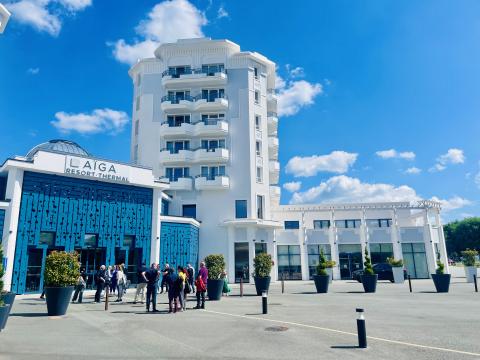
Sustainable Food Systems and Climate Adaptation
Our final day in the stunning setting of Le Mont-Dore was equally enlightening. We were graciously received by Mayor Sébastien Dubourg, who introduced us to the region's efforts in sustainable local food systems through an impressive presentation by Christelle Maitre, General Secretary of the Sancy Community of Communes. This session emphasised the critical link between local food production and ecological sustainability, illustrating how integrated approaches can lead to significant environmental benefits.
Guillaume Laloge-Neige, Project Manager at Epidor, discussed the LIFE DORSANCY project, which focuses on adaptation to climate change and revitalisation of the upper Dordogne valley. This project exemplifies how regional initiatives can contribute to broader climate adaptation efforts. The visit concluded with a tour of the thermal establishment of Le Mont-Dore, guided by Director Séverine Thomas Gardet, illustrating the seamless blend of tradition and modern sustainability practices.
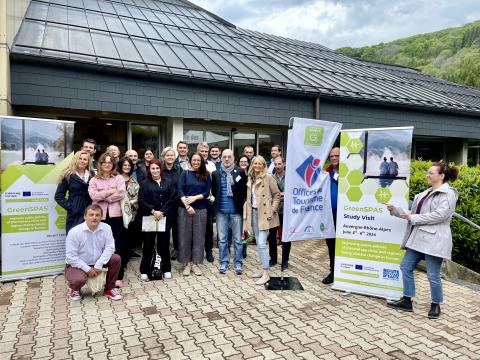
This study visit has been a crucial milestone for the GreenSPAS project. The insights gained and the innovative practices observed have significantly enriched our understanding of how thermal regions can effectively address climate change. By learning directly from experts and witnessing their successful initiatives, we are now better equipped to improve public policies and foster sustainable development in thermal towns.
